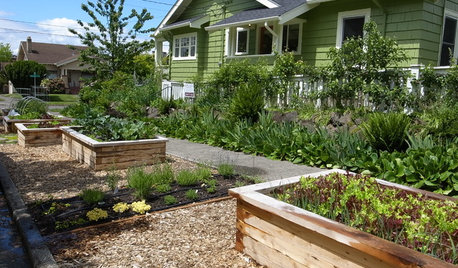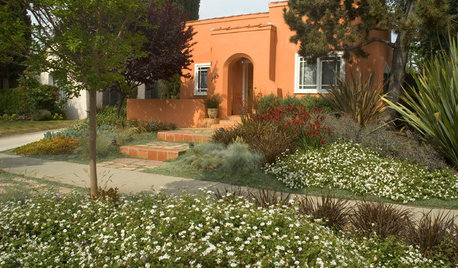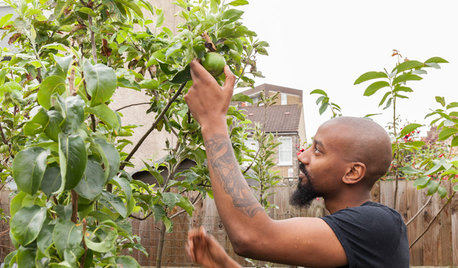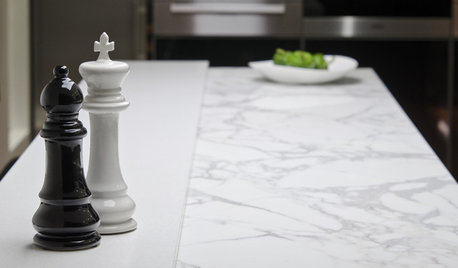Vinegar and blueberries
davisgard
15 years ago
Related Stories

HOUSEKEEPINGGet Those Carpet Stains Out: Best Nontoxic Methods for Spot Cleaning
Banish blotches the safe way with pantry staples, to get your rugs looking as clean as the day they came home
Full Story
BEFORE AND AFTERSSee 6 Yards Transformed by Losing Their Lawns
Wondering whether a turf lawn is the best use of your outdoor space? These homeowners did, and they found creative alternatives
Full Story
HEALTHY HOME12 Ways to Set Up Your Kitchen for Healthy Eating
Making smart food choices is easier when your kitchen is part of your support team
Full Story
GARDENING GUIDESGrow a Beautiful Garden in Alkaline Soil
Got alkaline soil? Learn how to manage it and the many beautiful plants that will thrive in this ‘sweet’ soil
Full Story
GREAT HOME PROJECTSHow to Replace Your Lawn With a Garden
New project for a new year: Lose the turfgrass for energy savings, wildlife friendliness and lower maintenance
Full Story
HOUSEKEEPINGHow to Clean Marble Countertops and Tile
Acidic solutions can damage your marble surfaces. Here’s how to keep marble looking clean and amazing
Full Story
KITCHEN DESIGNUsing White Marble: Hot Debate Over a Classic Beauty
Do you love perfection or patina? Here's how to see if marble's right for you
Full Story
GARDENING GUIDESLush, Foodie Abundance in a Small Urban Garden
This modest backyard garden provides its owner with fruit and vegetables all year round, thanks to an innovative low-maintenance approach
Full Story
KITCHEN COUNTERTOPSKitchen Counters: High-Tech Solid Surfaces Make Maintenance Easy
Sculpted by heat and nonporous by nature, solid-surface countertops bring imagination and low maintenance to the kitchen
Full Story
LAUNDRY ROOMSKey Measurements for a Dream Laundry Room
Get the layout dimensions that will help you wash and fold — and maybe do much more — comfortably and efficiently
Full StoryMore Discussions








fruitnut Z7 4500ft SW TX
davisgardOriginal Author
Related Professionals
Maple Valley Landscape Architects & Landscape Designers · New Bedford Landscape Architects & Landscape Designers · Glendora Landscape Architects & Landscape Designers · Washington Landscape Architects & Landscape Designers · Pelham Landscape Contractors · Stoughton Landscape Contractors · Danvers Landscape Contractors · Kettering Landscape Contractors · Lewisville Landscape Contractors · Mercedes Landscape Contractors · Milford Landscape Contractors · Post Falls Landscape Contractors · Seminole Landscape Contractors · Thornton Landscape Contractors · Palos Hills Landscape Contractorskranser
kranser
chills71
fruitnut Z7 4500ft SW TX
rosefolly
davisgardOriginal Author
fruitnut Z7 4500ft SW TX
tkhooper
fruitnut Z7 4500ft SW TX
rosefolly
fruitnut Z7 4500ft SW TX
rosefolly
ericwi
phase0001
davisgardOriginal Author
bluesky_girl
fruitnut Z7 4500ft SW TX
yeehaw502_yahoo_com
troyjodoin
General
gardengal48 (PNW Z8/9)
Ike Stewart
Jean Lobby